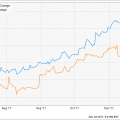I’ve seen it over and over again with clients: they reached financial independence at some point in their 50s or 60s. And then, years later (maybe several years, maybe a decade or more), they inherited a whole bunch of money from their parents. And it’s not that the inheritance does nothing for them, but it really doesn’t change their lives dramatically, despite being a very large sum.
Christine Benz recently discussed the implications of a large inheritance and how it often means that there were missed opportunities, whether for spending on oneself or for more impactful giving to loved ones at an earlier point.
- We Need to Talk About Your Retirement ‘Spending’ — Big Inheritances Can Be a Sign of Underconsumption and Suboptimal Planning. from Christine Benz
Other Recommended Reading
- Advice for the Kids from Jonathan Clements
- Typical US Homebuyer More Likely to Be Older, Single and a Woman from Alex Tanzi
- Planning for Incapacity from Beth Morrison and Amy Erickson
- The 5 Levels of Intelligence from Ben Carlson
- Some Things I Don’t Believe About Investing from Ben Carlson
- ~26 Million Businesses Still Have to File Their Mandatory BOI Reports by January 1 from Martha Waggoner
- What Makes Elon Tweet from Bill Bernstein
Thanks for reading!
What is the Best Age to Claim Social Security?
Read the answers to this question and several other Social Security questions in my latest book:
| Social Security Made Simple: Social Security Retirement Benefits and Related Planning Topics Explained in 100 Pages or Less |
Disclaimer:Your subscription to this blog does not create a CPA-client or other professional services relationship between you and Michael Piper or between you and Simple Subjects, LLC. By subscribing, you explicitly agree not to hold Michael Piper or Simple Subjects, LLC liable in any way for damages arising from decisions you make based on the information available herein. Neither Michael Piper nor Simple Subjects, LLC makes any warranty as to the accuracy of any information contained in this communication. The information contained herein is for informational and entertainment purposes only and does not constitute financial advice. On financial matters for which assistance is needed, I strongly urge you to meet with a professional advisor who (unlike me) has a professional relationship with you and who (again, unlike me) knows the relevant details of your situation.
You may unsubscribe at any time by clicking the link at the bottom of this email (or by removing this RSS feed from your feed reader if you have subscribed via a feed reader).



